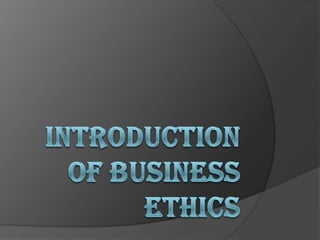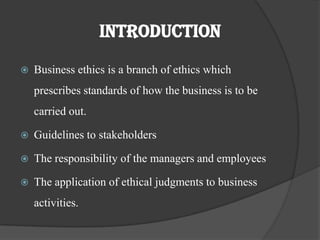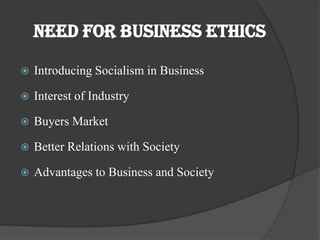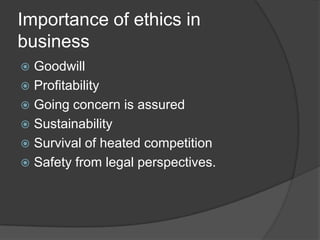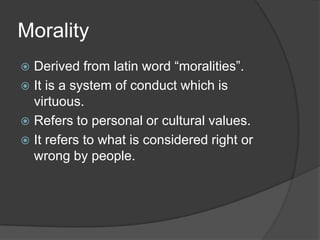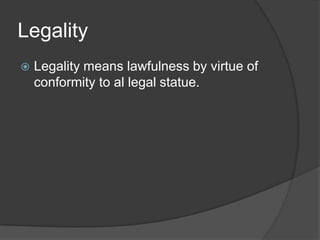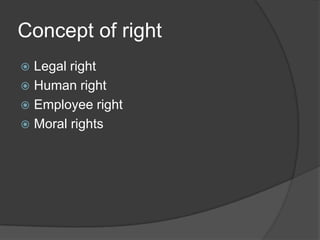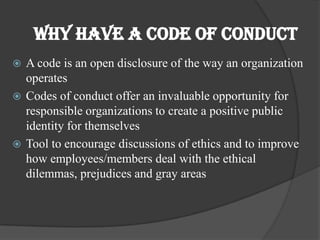Introduction of business ethics
- 1. INTRODUCTION OF BUSINESS ETHICS
- 3. IntroductionBusiness ethics is a branch of ethics which prescribes standards of how the business is to be carried out.Guidelines to stakeholdersThe responsibility of the managers and employeesThe application of ethical judgments to business activities.
- 4. WHAT IS ETHICAL BEHAVIOUR?Ethical behavior is that which is morally accepted as "good" and "right" as opposed to "bad" or "wrong" The advantages of ethical behaviour include:Higher revenues – demand from positive consumer support
- 5. Improved brand and business awareness and recognition
- 6. Better employee motivation and recruitment
- 7. New sources of finance – e.g. from ethical investorsRelationship between business and ethicsBusinesses that exhibit and promote strong corporate codes of ethics are more prosperous in the long runEnhances a company's reputationThe highly competitive environment in today's global economy puts pressures on company leaders to remain profitable
- 8. Need for business ethicsIntroducing Socialism in BusinessInterest of IndustryBuyers MarketBetter Relations with SocietyAdvantages to Business and Society
- 9. Importance of ethics in business GoodwillProfitabilityGoing concern is assuredSustainabilitySurvival of heated competitionSafety from legal perspectives.
- 10. Types of ethicsNormative ethicsApplied ethics
- 11. MoralityDerived from latin word “moralities”.It is a system of conduct which is virtuous.Refers to personal or cultural values.It refers to what is considered right or wrong by people.
- 12. Legality Legality means lawfulness by virtue of conformity to al legal statue.
- 13. Distinguish ethics and laws
- 14. Concept of rightLegal rightHuman rightEmployee rightMoral rights
- 15. Concept of dutyRights and duties are correlativeDuties are what he/she owes to others.
- 16. Ethical organisationOrganisation should posses ethical behaviour.Three theories provide a framework fro judging ethical nature in business.1. theory of corporate excellence.2. Ethics and shareholders value.3. ethics and corporate governance.
- 17. Code of conductA state of rules to guide behaviour and decisions.
- 18. Why Have a Code of ConductA code is an open disclosure of the way an organization operatesCodes of conduct offer an invaluable opportunity for responsible organizations to create a positive public identity for themselvesTool to encourage discussions of ethics and to improve how employees/members deal with the ethical dilemmas, prejudices and gray areas
